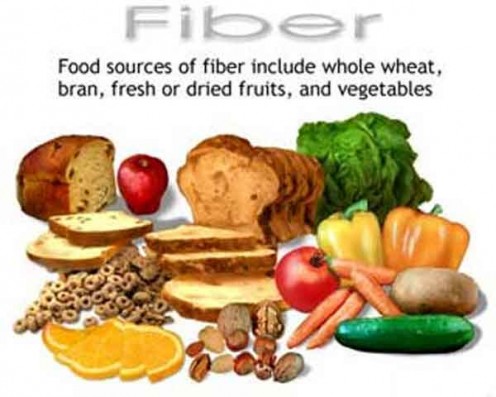ROLE OF DIETARY FIBRES ON YOUR HEALTH

Role of Dietary fibres on your Health
Dietary fibres comprise non-digestible carbohydrates such as cellulose, lignins, pectins, gum, mucilage etc. that cannot be digested by human digestive enzymes. These dietary fibres are obtained from unrefined cereals, fruits, vegetables and pulses. Vegetables and unrefined cereals are sources of water-insoluble fibres (cellulose, lignins etc.) whereas fruits and pulses are sources of water-soluble fibres (pectins, gum, mucilage etc.). Although dietary fibres do not provide energy but they have several beneficial effects on human health. Let’s see some of them.
1. Improves bowel motility: Since the fibres retain large amounts of water, they provide bulk to the intestinal content and improve the bowel motility (peristalsis). The water-insoluble dietary fibres not only increase the stool bulk but soften it too. These actions decrease the bowel transit time which help in east defecation and, thereby, reduce constipation.
2. Prevents colon cancer: Since the dietary fibres especially lignins bind carcinogens, they play an important role in reducing the risk of colon cancer. The studies have shown that the non-vegetarians have greater risk of developing colon cancer as compared to vegetarians, since non-vegetarian foodstuffs contain no dietary fibres.
3. Reduces blood cholesterol:Water-soluble dietary fibres bind the dietary cholesterol and prevent its absorption from the intestine. These fibres also bind the bile acid that reach in gut during digestion. This will help in decreasing the blood cholesterol level and can reduce the risk of cardiovascular diseases associated with hypercholesterolemia.
4. Role in diabetes mellitus:The water-soluble fibres delay the postprandial rise in blood glucose level by slowing the rate of stomach emptying and thus prevent a rapid rise in blood glucose after ingestion. Therefore, diabetics are recommended to have a high fibre diet.
Note: Dietary fibres can bind certain minerals such as zinc, calcium, phosphorus, iron etc. and fat soluble vitamins such as Vitamin A, D, E and K. this will result their decreased absorption from the intestine. Therefore, only a moderate amount of dietary fibres (20-30 g/day) should be included in the diet.
© 2012 Resmy Robin








